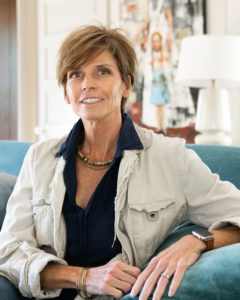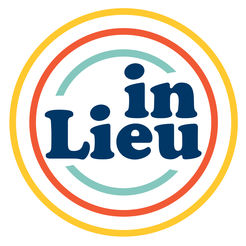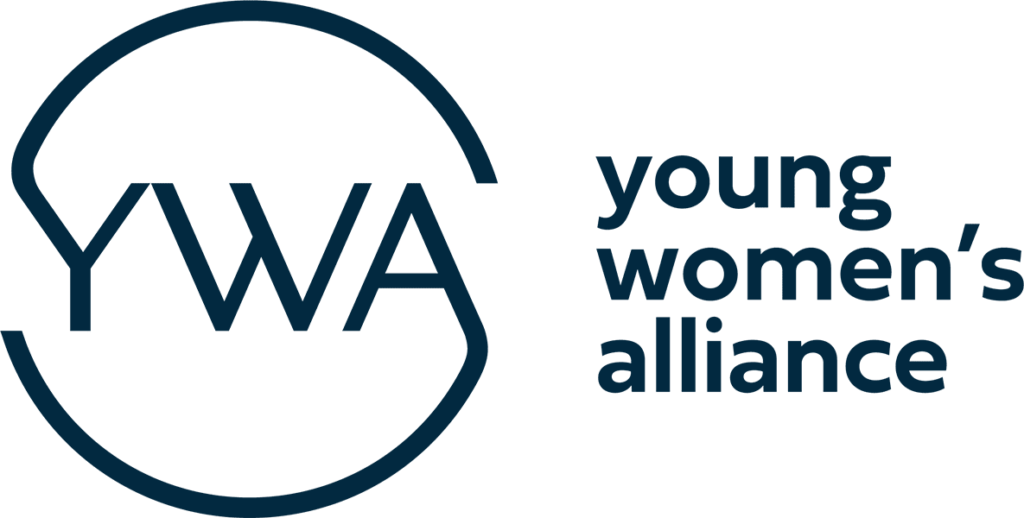A fierce female and serial entrepreneur, Kathy Terry has been making waves since starting her first business over 20 years ago. In 2005 she co-founded P. Terry’s Burger Stand with her husband Patrick and quickly established its presence as a socially and health-conscious fast food alternative. With fifteen P. Terry’s locations and counting (and a hot new fast casual Mexican offering called Taco Ranch) there’s no denying that Kathy Terry has helped change the way Austinites do “fast casual.”
Kathy and Patrick have a heart for philanthropy and giving back has always been a core principle of the Terry’s business model. Through their stewardship, the restaurant chain has donated over $800,000 to date, all benefiting local nonprofits. But Kathy didn’t stop there – in 2017 she launched an all-new mobile app called inLieu: the first social giving app where users can make donations and share a personal message with a friend, anytime, anywhere.
Kathy’s mission to change the way we think about giving is a reflection of a lifetime of charitable giving and service. Her goal is simple–to make it easier for people to make the world a better place.

As a successful business owner and someone in the restaurant industry, what made you want to start a venture in the non-profits?
I never set out to create a business. I was really stuck in the fact that I couldn’t give in the way that I wanted to give to my friends. And I couldn’t show up in the way I wanted to show up. So I found myself wanting to make donations in lieu of material gifts. I was living in a world where I don’t need anything else, my friends don’t need anything else. I think it’s ridiculous that we’re running around, crazy trying to find obligatory gifts when none of us need anything. A much better gift would be supporting a donation to cause that they love. For me, I needed this tool. I looked for a platform that would allow me to give on behalf of a friend with a note attached. The only way to do it was to create a profile on a page and make a donation with their name but I never really knew how they would get the message. I felt like the whole giving journey was disjointed. For me, the whole drive was to build the app, so I could use it.
The vision of what I wanted was easy. I knew what I wanted the user to have so then I had to work backwards. I met with the mobile app world as well as the nonprofit and the donating world, so it was about bringing it all together. Then the next part was getting people to actually start using it.
Donating is all reactive; donating to a kid’s softball league or to a charity for someone’s birthday on Facebook. But I want to make donating more proactive. You don’t have to ask me to make a donation to your favorite charity because I’m just going to make it because that’s how I want to show my gratitude or appreciation or my love. So this idea of proactive giving is much easier through InLieu.
What are a few causes that are close to your heart?
There are so many but for me, I support Heart Gift which is a local nonprofit that brings kids who are born with congenital heart defects to Austin to receive heart surgery. It’s so tangible; my family hosts a child every year and we’ve hosted seven kids to date. It gets my family out of our comfort zone. I tell my kids all the time; if you’re uncomfortable it means you’re learning something and making you stronger.
I was also a direct care volunteer at the Austin Children’s Shelter and eventually joined their board. They eventually merged with Safe Place and served on that board and now their Foundation Board.
Children are near and dear to my heard; I love to support any charity that advocates for children. Dell Children’s Hospital is nonprofit I support as well. I sit on their advisory board for their global outreach and went on some medical missions with their doctors.
A lot of our members are early in their careers and starting to establish themselves financially. Do you have advice for them to help make a bigger impact?
The idea of collective giving, like your campaign [FFC] helps enable groups to give back. I mean just imagine; if we all give $10, how much of a difference we could make!
There is a theory that people who buy gifts for themselves sometimes do it more for the act of purchasing something rather than the thing itself, do you believe that is true? Is that something you hope can be redirected into donations through this app?
Think about how many gifts get thrown away or regifted or taken to Goodwill after sitting in your house for two years. It’s crazy; we spend over $400 Billion dollars on gifts a year. I was looking at specific stats over the holidays and right now we have over $45 Billion sitting in unused gift cards. It’s having to remind people to stop what they’re normally doing and to think differently about giving. The big hurdle for us is making proactive giving more acceptable; making our gift giving more intentional. If we all want a different world, we just need to show up.
We’ve all been conditioned to show emotions with material gifts. We could still send a thoughtful gift and have a bigger impact on the world by making a donation in lieu of giving a material gift.
When did you make your first donation ask and did you feel nervous or worried about making the ask?
The first time I made an as was when I was on the board for Austin Children’s Shelter. It was an easy ask because I had seen the impact that the organization had made. It was easy to connect a story with the ask. Any time you can have a personal connection, it makes it so much easier.
I go back to what my husband used to say when we were working at P. Terry’s and we would get asked all the time through schools or organizations which sometimes got to be a lot. ‘Everyone has the right to ask, and you have the right to say no.’ It’s important to respect and honor the person’s passion who is making the ask.
That’s why the app is so helpful. Instead of having to rely on the 3% of the population who are routine donors, we can use the app. If we could flip that to where 97% of the population donate when and what they can, we can make a huge difference. Which is the goal of the app, the social network of giving. It’s not the amount that people give, I don’t want to make anyone feel guilty, so I don’t show the amount of the gift. That encourages donations of all sizes and makes it part of the normal course of our lives.
You are obviously a great philanthropist and volunteer leader, is this something you are instilling into your children? What do you do to try make this fun and meaningful instead of a “chore?”
I just make it part of my life. To me, it’s the whole package. I don’t think of it as putting on my volunteer hat, or say ‘it’s the end of the year, it’s time to donate’. It’s my job to raise independent, passionate, giving children. It’s my job and I’m trying to leave the world better that I found it. It’s about trying to find a way to get back on track.
What was one of the more meaningful experiences you have had working with or giving to a local non-profit?
With hosting the seven children through Heart Gift, my kids create these amazing relationships with children all over the world. And just being on that journey with that mom or dad who is trying to save that child’s lift is just unbelievably impactful.
I also loved my work with the Strong Start Program at Austin Children’s Shelter. I would see the same kids every week. I often say it wasn’t the clients that made the biggest impact on my life, it was the staff that changed my life. By watching their behavior and the way they connect and work, made me a better mother to my own children.
When I volunteer with these organizations, and see their passion, it’s also so much easier to give back to them. I can see how my dollars are being spent.
At YWA we emphasize Mentorship by providing our members mentors through YWA Connect and encouraging them to be mentors themselves to girls in the GEN programs. Have you ever had a meaningful mentor? Do you feel mentorship, especially among women, is particularly valuable?
It’s extremely valuable. It’s that saying, if you can’t see it, you can’t be it. I look back in my life and think the role models that I’ve had; people that may not have officially been my mentors but had a huge impact on me. Just being able to see their success and the impact they’re having in the work that they’re doing. It’s so great to find and have mentors that are from different walks of life. The more diverse the better.
